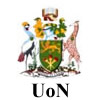The Master of Science in Clinical Cytology programme at the University of Nairobi has been developed with the aim of training competent Medical Cytologists who on graduation, will work hand in hand with clinical pathologists, to provide much needed cytological diagnostic services, in this country and elsewhere.
Clinical cytology is a sub speciality of pathology that makes possible the detection of disease or other abnormal conditions in the body by studying individual cells. Though the study of cells in disease goes back to the end of the nineteenth century, it is only the past seventy years that the potential of this technology in the general care of patients has been recognised. Indeed, the study of blood and bone marrow cells as a means of making a diagnosis in various diseases, is well established.
The first clear application of the principles of cytology to medical diagnosis was in the detection of female genital cancer by studying exfoliated cells, a technique commonly known as "pap smear" after its developer George Papanicolaou at the beginning of the 20th century. Later, use of the technology was extended to the other body systems such as the respiratory and gastro-intestinal tracts. More recently, it has become possible, using modern Fine Needle Aspiration (FNA) techniques, to obtain cells from deep-seated tumours in the lung, pancreas and other organ systems, for cytopathological diagnosis. This approach to diagnosis often eliminates the operations and cuts down on hospitalization period health care costs.
In recent years, the incorporation of advanced technologies such as electron microscopy, immunocytochemistry and flow cytometry into clinical, has markedly expanded the scope of this sub-speciality making it a fledged discipline, hence the need to mount this course in the department of human pathology.
Since 1985, the Department of Human pathology at the University of Nairobi has participated in the training of pathologists who work mainly in government hospitals though a small proportion of these have been absorbed back to the training department as members of the academic staff.
For pathologists to take full advantage of the current advances in cytopathological diagnosis there is need to train a support team who will play an important role both in patient care and in research locally, as well as in this region and elsewhere in the world.
Some of the graduates of the Master of Science in Clinical Cytology programme will be absorbed by the Ministry of Health to work alongside pathologists while others will be absorbed by the teaching departments where they will participate in training, in research and in service provision.
In addition to training Clinical Cytologists, the Master of Science in Clinical programme will provide an opportunity to practising doctors who may wish to train in clinical cytology,as part of continuing education.
The Master of Science in clinical cytology programme therefore, aims at producing clinical cytologists who are adequately trained:
To offer specialised medical laboratory service using cytopathologic techniques in both public and private clinical laboratories. To participate in teaching and research activities pertaining to Cytopathology.
